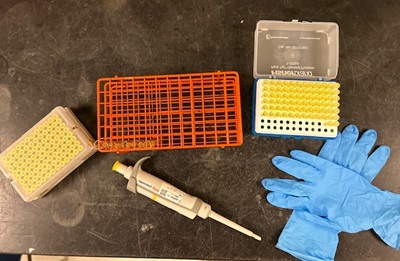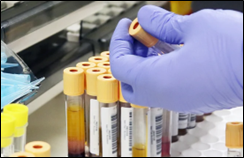
Since January 1, 2020, Illinois residents 21-years and older can legally purchase cannabis from licensed sellers with or without a medical card. However, it is against the law for a person to drive or operate a motor vehicle in Illinois if the individual is under the influence of any drug or intoxicating compound to a degree that renders the person incapable of safely driving. A major statewide roadway safety issue has been the rise in opioid usage, with an increase of 30% (2013-2020) in individuals involved in fatal motor vehicle crashes testing positive for opioids. However, the state’s ability to test for multiple substances is limited and outpacing the lab’s capacity.
Through a grant funded by GHSA and Responsibility.org, the Illinois State Highway Safety Office used the funding to expand its ability to test drivers arrested for impairment by synthetic opioids by partnering with the University of Illinois at Chicago’s Analytical Forensic Toxicology Lab (AFTL).
Lab Material Purchasing and Usage
In August 2022, the AFTL kicked off the grant activities by purchasing the materials and equipment needed for the opioid testing. The lab then developed an optimization process that established the testing standards and procedures.

The optimization process began in September 2022 and concluded in May 2023. During the optimization process, AFTL encountered problems with the mass spectrometer, periodically shutting down due to “overload.” As a result, the initial optimization process was completed in January 2023.
Throughout February 2023, the AFTL created a research development method that dictated the lab procedures for the compounds. By the end of the month, the AFTL was able to test for synthetic substances. The final project objective was unfortunately delayed due to the re-optimization process not being completed until May 2023. AFTL will continue to monitor the sample analog methods to incorporate into Illinois’ DUI screening process and provide a final update in the coming months.
Ongoing Project Impact
One of the project’s major successes was establishing a system for collecting comprehensive data on positive analog tests and the number of drivers involved. This data will provide a detailed understanding of the extent and patterns of opioid use among Illinois drivers. The availability of accurate and up-to-date data will enable law enforcement agencies and state highway safety officials to make better-informed decisions about enforcement strategies and prevention efforts.
